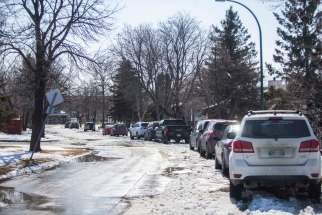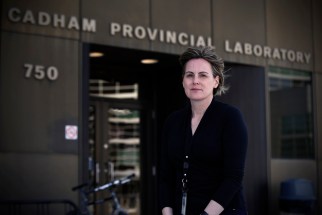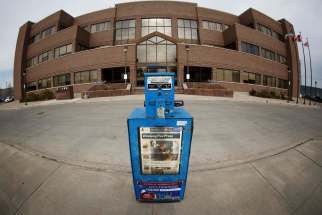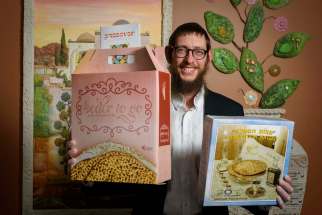Passover seders go virtual during COVID-19 pandemic
Read this article for free:
or
Already have an account? Log in here »
To continue reading, please subscribe:
Monthly Digital Subscription
$1 per week for 24 weeks*
- Enjoy unlimited reading on winnipegfreepress.com
- Read the E-Edition, our digital replica newspaper
- Access News Break, our award-winning app
- Play interactive puzzles
*Billed as $4 plus GST every four weeks. Offer only available to new and qualified returning subscribers. Cancel any time.
Read unlimited articles for free today:
or
Already have an account? Log in here »
Hey there, time traveller!
This article was published 06/04/2020 (1761 days ago), so information in it may no longer be current.
As he prepares to celebrate Passover this week during a global pandemic, a Winnipeg rabbi sees parallels to the story of the very first celebration.
“They were not allowed to exit their homes until morning,” explains Rabbi Shmuel Altein of the Jewish Learning Institute of how the Hebrews — as told in the story of Moses — faced the death of their first-born if they ventured out, which was the last of the 10 plagues, and the one that convinced the Pharoaoh to free the enslaved Israelites.
“It’s definitely a time to pause and reflect what is important to humanity and life.”
Passover, or Pesach in Hebrew, begins at sundown on Wednesday, April 8 and runs until sundown on Thursday, April 16. The traditional dinner, called a Seder, includes Matzah, an unleavened bread, and bitter herbs, and other foods symbolizing the story of Moses and the Jews enslaved by Pharaoh.
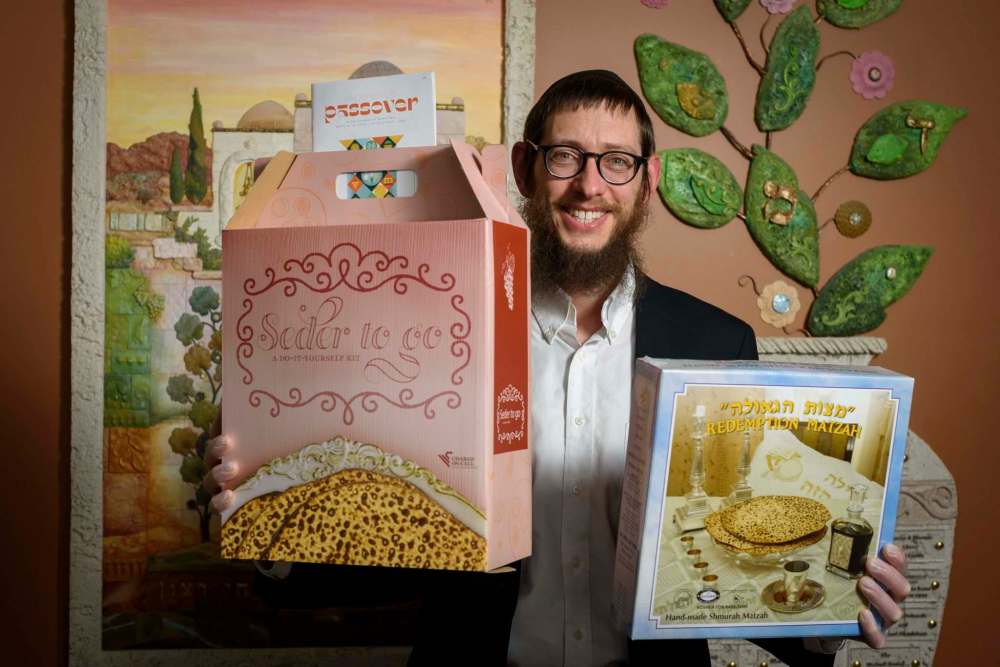
Community Seders are cancelled this year due to social distancing and public health concerns about the transmission of the coronavirus, and Winnipeg’s Jewish community has made accommodations to hold virtual seders or celebrate in their own households on the first two days of the holiday.
“This year for the first time there are so many people who have never led a Seder before and they have to learn how to do Seder,” explains Altein, who distributed a guide to hosting a the tradition Passover dinner online as well as a flyer insert in the Jewish Post and News. “We’re here to help people celebrate at home.”
Chabad-Lubavitch Winnipeg, where Altein works, has an extensive explanation of Passover on its website https://www.chabadwinnipeg.org/ and sells Seder-To-Go kits packed with the symbolic foods and other necessary items for $50. It also sells handmade Matzah, flown in from New York.
For the first time ever, members of Congregation Etz Chayim can host virtual Seders from their home, inviting friends and extended family members to join them through an electronic platform, explained Rabbi Kliel Rose.
“It’s pretty remarkable for a congregation that until Wednesday, March 18, did not have an interactive online service,” said Rose about the swift move to technology of his North End Conservative congregation because of the current restrictions on gathering in groups.
“Saving a life makes every other legal requirement less important.”
– Rabbi Kliel Rose
Last week, Canada’s chief public health officer wrote religious leaders to ask for cooperation in ensuring people maintain proper distance from each other and not to host gatherings in their home, even for religious events such as Passover or Easter.
“I urge you to use your leadership role to discourage these gatherings, in order to protect the safety and health of your congregants and community,” Dr. Theresa Tam wrote on April 3.
A member of the Rabbinical Assembly, Rose connects with his rabbinical colleagues frequently about how to adapt Jewish practice during pandemic times, as well as checking in with the rabbis in his family, including his father Rabbi Neal Rose, a former University of Manitoba professor now living in St. Louis, Mo.
“When Jewish law is central to how you live your life, how do you interpret traditions and precedents from 1,300 years ago and apply them to this particular moment,” Rose says of adaptations for public health during the COVID-19 crisis.
“Saving a life makes every other legal requirement less important.”
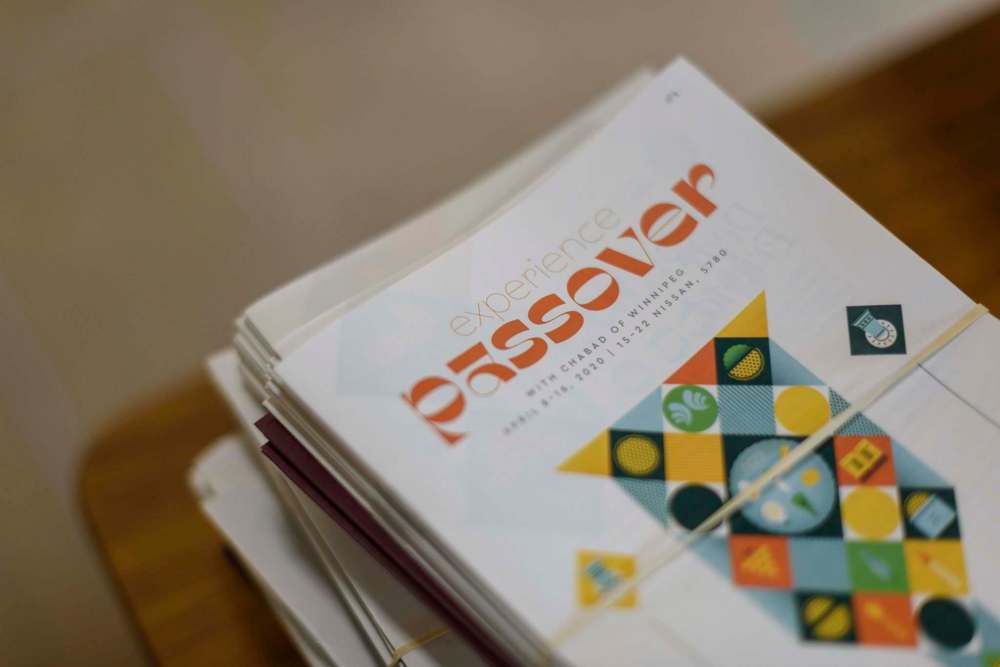
During Passover, one of those legal requirements is to sell or physically hand over all leavened grains or grain products, called Chametz in Hebrew, but this year members can do that online by submitting a form, said Rose.
“There’s this tension. On one hand we want to honour this tradition we think is valuable, but we also want people to know they are staying within the (public health) framework,” he said.
Across the city, Rabbi Anibal Mass will invite up to 100 households from Congregation Shaarey Zedek into his south Winnipeg home for a virtual and live First Seder with his family at 6 p.m. Wednesday, April 8.
The former computer programmer turned rabbi will haul up his sound equipment from his basement recording studio into his dining room to lead his congregation through the rituals, meals and liturgy, asking them to follow along with the illustrated Haggadah on the synagogue’s website.
“Everything is going to be on screen if you are not computer savvy,” said Mass, who will lead the Seder along with his six-year-old son Ronen, his wife Adrienne Meyers, and her mother. “We are trying to make it accessible for everyone.”
Mass plans to use multiple platforms for the virtual seder, enlisting his wife and mother-in-law to check comments and questions on Facebook and YouTube so he can interact with participants in real time.
He said this year the story of the how the Hebrews enslaved to Pharaoh were freed to follow God becomes even more relevant in this time of global uncertainty and heightened anxiety.
“When you leave Pharaoh behind and start serving God, you start listening to another voice that says you can do so much more,” Mass said of the similarities to the current crisis.
“It may be uncomfortable and you may spend 40 years in the desert.”
faith@freepress.mb.ca
The Free Press is committed to covering faith in Manitoba. If you appreciate that coverage, help us do more! Your contribution of $10, $25 or more will allow us to deepen our reporting about faith in the province. Thanks! BECOME A FAITH JOURNALISM SUPPORTER

Brenda Suderman
Faith reporter
Brenda Suderman has been a columnist in the Saturday paper since 2000, first writing about family entertainment, and about faith and religion since 2006.
Our newsroom depends on a growing audience of readers to power our journalism. If you are not a paid reader, please consider becoming a subscriber.
Our newsroom depends on its audience of readers to power our journalism. Thank you for your support.
History
Updated on Monday, April 6, 2020 9:29 PM CDT: Fixes typos
The Free Press acknowledges the financial support it receives from members of the city’s faith community, which makes our coverage of religion possible.

